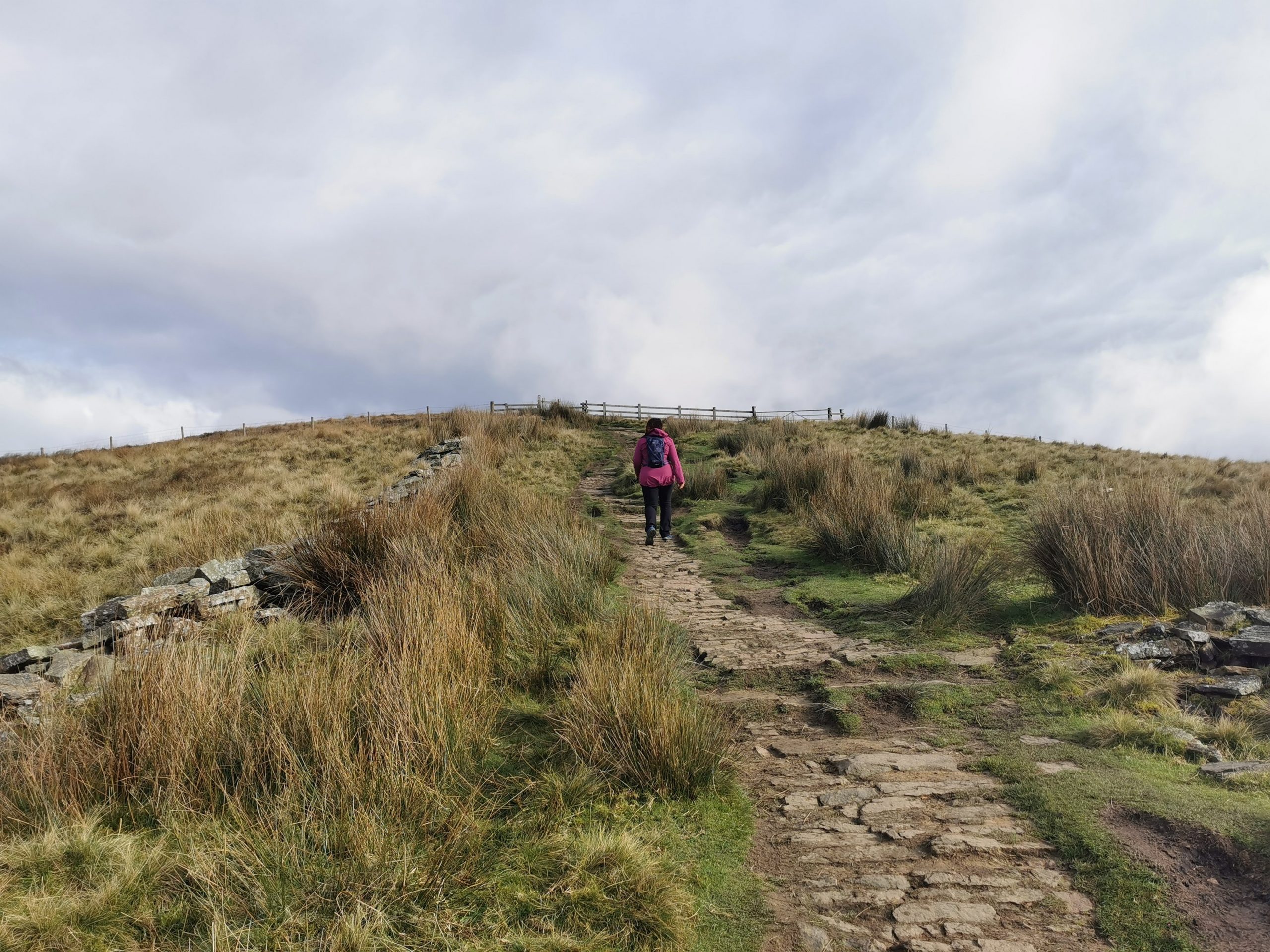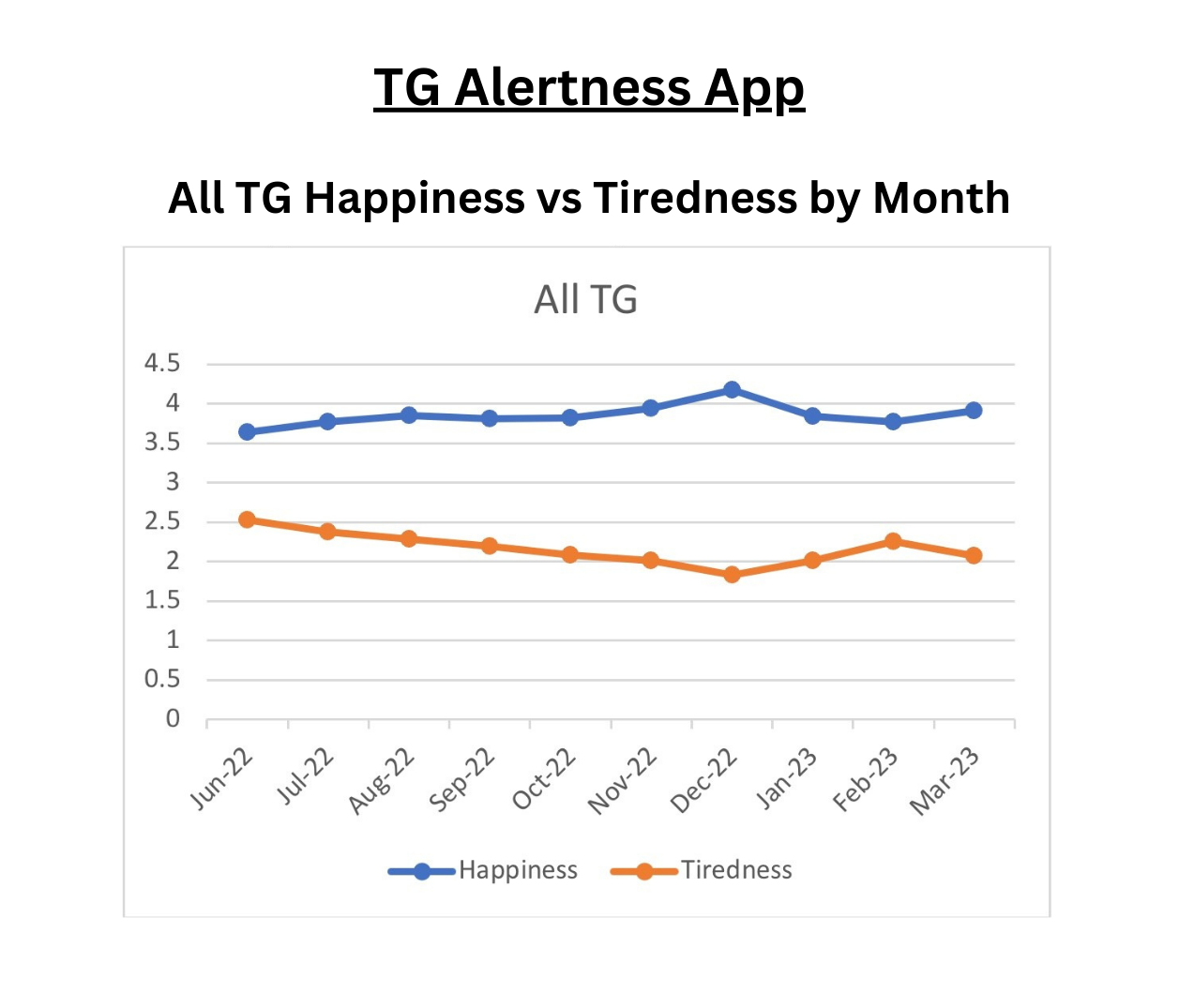Documenting our 4-day week journey (Simon’s blog)
16 Oct 2023
“The secret of change is to focus all of your energy, not on fighting the old, but on building the new.” – Socrates.
16 Oct 2023
“The secret of change is to focus all of your energy, not on fighting the old, but on building the new.” – Socrates.
By now, you should be up to date on our journey which has led us to a 4-day week. If not, be sure to loop back for part one of our journey, which explores our preparation and decision to participate in the trial.
In part-two, we’ll be sharing the good, the bad and the ugly as we document our progress – along with some tips, tricks and lessons along the way. We hope this will help to inspire and encourage others to follow suit; to create a happier and healthier workforce, community and planet.
Whilst we’re expecting a few bumps in the road, hopefully this will help pave the way for others and help them navigate the change in their future – making it easier for others to follow suit.
Check in regularly to hear the latest from our MD, Simon, as he provides a candid account of our social experiment as it happens.
There’s no hiding that, to get to this point, we’ve put in a lot of hours. Talking to researchers. Reading countless case studies and publications. Canvassing opinions. I’d often find myself lost in a rabbit hole.
Whilst research couldn’t tell us how it would work for us (I guess that’s why we’re part of the trial!), one thing ran clear throughout all our digging: almost every business that has trialled a 4-day week has seen an improvement in efficiency.
So, how could we make it work in our Tribe? It was time to ask them. After all, they were the people that would make or break success.
About 18 months ago, I got the conversation started.
Why? At Tyler Grange, we believe in honesty. Not just when it suits. Not just to attract clients. Not just at the top. It’s one of our core values from which the business is built on. So, it was important for me to include (and be honest with) our team from the start.
It started off as me sharing some initial thoughts on how we could achieve a 4-day week. However, it quickly spiraled into much more, as we sought the opinions of a select group of clients and suppliers too…
For reasons I didn’t expect, this was a very worthwhile activity.

Going into the announcement, there was an assumption that my team would be delighted and counting down the days to the change – and to a large extent, they were. However, what I didn’t anticipate was how much this would uproot concerns around the knock-on implications. I thought that would come later.
But we’ve got a bright and brilliant bunch at TG; that’s why our exciting announcement turned into a deep dive of thoughts, questions and analysis. I wanted to include them; they wanted details I hadn’t yet considered.
But would I do this differently? Honestly, I don’t think so. Their hunger for detail gave the Directors and I plenty of food for thought. They set us down a path of further exploration – keen to get them answers – or discover if this was something we could learn together along the way. All whilst living true to our values.
Perhaps the most common concern I navigated off the back of these conversations was how this would work. They were right. It sounds stressful when you think about it.
But – in reality – it was possible by focusing on employee happiness and efficiency. All of the evidence proves so. Yet, to date, 18-months after our initial chat, this is still the greatest concern for our team and, to be honest, for me too!
Whilst the research and experience of others – within our team and in papers and case studies from across the world – is overwhelming in reporting productivity increases, it’s normal to have a nagging doubt about it.
I guess that is kind of the point though… We’re undertaking this whole experiment to see if it helps to combat overworking. That’s what I remind myself of when I’m assessing how we’ll keep the risk of overworking at bay. I remind myself we’re aware of it and actually doing something about it. That’s got to be a good starting position.

Our suppliers and clients that we canvassed our idea on eagerly wanted to know how they could extend their weekend too. Sure, it sounds like a no brainer but lots of thought needs to go into it, so where would I recommend you start?
Hit the books. Work the word of the street. Learn from those who have been there and done it. If you’re considering big change, that’s often the best place to start.
For me, researching a 4-day week was when our dreams really started becoming a reality we could see actually working for us.
I recommend starting with this 5-minute read by Nicole Kobe. It covers most of the pros and cons that surfaced in all of the research I have read – looking at the Icelandic trial in a slightly less emphatic way than some of the cheerleading articles written by others.
Let me know how you get on!
Today, I’m reflecting on why we opted to join the trial. Why I wanted to dip a toe in before diving in head first (despite my very giddy excitement).
I’ll start by letting you in on a secret. Until a few months ago, we actually aimed to start our trial on 1st January 2023. We’d already come so far in our preparations and felt setting a date was the right next step. It felt far enough in the future that we’d have plenty of time to adjust to the idea.
But then we came across the 4-day week trial.
Initially, I was comforted by the thought that others were considering the same. After all, since covid, we’ve all been feeling the time squeeze and reassessing what we want from our lives.
However, as it sunk in, I wondered to myself: why aren’t we amongst them? After all, we were as prepared as we were going to be.
Yes, it would mean bringing forward communications to clients and suppliers. But we’d worked hard to improve efficiencies in-house and streamline a lot of our admin already, so why were we putting it off? This way, we could do a trial with the support of others, too.
I decided we’d go for it.
So far, our preparation has stood us in good stead. I feel we’re in a great position to move forward with the trial and have organised to meet with the Tribe to update them of where we’re at.
If you’re considering it too, here’s my insight.
Our conversations started 18 months ago, and our team have thanked us for being included in the decision to do it. It helped us to address concerns and put us in the best position to make a real go at this trial.
We started working on efficiency and building systems early on that would help us put efficiency at the heart of TG. These big changes can actually reduce efficiency at first, and you wouldn’t want to do that at the start of the trial, as these would ruin your results.
It’s obvious why. You don’t know how things might pan out. A trial gives everyone more safety and reassurance. It encourages everyone to experiment and try things out and gets the innovation you need to make it work. Our trial will be six-months, at which point we’ll assess where we go from there.
I’m so grateful that we had the support of Sara Jane Turcan (she’s quite literally the best). Her expertise helped us to navigate all the legal stuff we needed to take care of to ensure we looked after everyone properly.
We have the most amazing marketing support from Mike Pye + Co. Dani Russo, who works closely with our team, has been unbelievable in advising us, making sure we hit the right notes, and helping everyone understand what we’re doing. We’ve also appointed a PR company to make sure we don’t fall foul of the media. For me, that was a big risk.
On Monday, I told the team of our news. Here’s how it went…
We got everyone together in our central (Birmingham) office under the premise of a whole-team day. We promised pizza and a team announcement. So, the team flooded in from every corner of the country to oblige!
Prepared with a brilliant ‘deck’ (presentation, for old people like me!), we told everyone of the exciting update and our progress so far. Everyone was excited. Unsurprisingly, we also had a whole heap of questions.
Because we had prepped, I felt equipped to answer most of the questions really well. However, when I couldn’t, I had to be honest and say: “We don’t know, it’s a trial and we’ll find that out together!” or promise to get back to them. The need to be an expert was somewhat taken away by the trial. It also helped to be backed by some big institutions helping us. In my experience, this cocktail of prewarning, preparation and backing helped to mitigate the immediate fear of big change.
So far, I’d say the team have taken it in their stride and feel largely excited about the concept of having an extra day back every week – particularly as we head into the warmer months.
However, amidst the excitement, there’s also an element of apprehension.
Whilst one of our Tribe so eloquently put it: “I don’t understand why everyone is asking questions? The gaffer has given us a day off, say yes!” there’s actually a lot more to it than that. It’s a fair point to feel a bit nervous. This is people’s livelihoods we’re talking about. It’s literally challenging the norms to which we’ve all been accustomed.
So, in the next few weeks, my role will be to be ‘all ears’ for the Tribe. We’ve opened a number of feedback channels, so that the team can speak with whom they feel most comfortable and have their questions addressed or escalated.
I’m exhilarated by this next step. For me, this is where we make real strides. Yes, we have a bunch of concerns we need to address but we’re damn excited about getting them sorted out and making Thursday the new Friday!
This was a nervy one. How would our clients react? You never can know.
We’d shared with a few – sounding them out. But, to be honest, we’d picked the ones we knew would understand. The ones that would ease us in gently. We knew we wouldn’t get backlash.
But when general roll out began, I think we were all pretty blown away by the response.
Some clients asked us for a job and said lovely things about TG and the innovative way we approach our work. Almost all of our clients have been, not only overwhelmingly supportive, but very eager to see how we make it work. We’ve been inundated with very positive responses on the whole.
But that does leave a small few on the other side of the fence. And we can’t pretend we don’t get it…
We understand. Some clients are worried about how we are going to deal with emergencies on Fridays. For others, their projects haven’t been going great and this looks like we’re not trying hard enough.

A happier, less stressed and better motivated Tribe should result in better work. In turn, that creates happier, less stressed clients. It’s win-win. But how do we navigate this difficult meantime?
These clients are important. We’re going to need to innovate and make certain we deliver. They expect nothing less and nor should they. And I believe we can.
I went into this experiment with an understanding that we’d uproot some concerns. I accepted that we may lose a couple of clients, if the fit wasn’t right. However, I have been impressed at the open-mindedness of our (rather traditional) industry so far and believe many will follow in our footsteps in the years that follow.
To the inspired few in that latter category, I wanted to share that well over 90% of those clients we’ve spoken to so far have been delighted. That’s a result beyond our wildest dreams. So, 4-day week or other, I implore you to challenge yourself to something surprising this year. The results might surprise you!
As Suzanne Brown, a psychologist who we work closely with, often reminds us, we often overestimate how awkward or uncomfortable something is going to be and underestimate how great it will make us feel.
Some of our clients don’t get it. That’s ok. Almost all of them do.
Since my last post, it’s been much of the same. We’ve been overwhelmed with positive feedback. More so than we ever anticipated.
I’ve also had a chance to explore and reflect the ‘other’ feedback too…
We’ve had a couple of clients struggle to understand our motivations. I could protest, speak them through the evidence and argue ‘til I’m blue in the face that this is the way the world needs to move to make room for life in the working world. That the way we’re going isn’t sustainable, and that everyone will have to follow eventually.

Sometimes in life, you have to embrace the fact that not everyone is going to like you. In work, that means that not everyone will want to work with you.
I won’t lie, we’d love to be able to help everyone… That’s just who we are at TG. But we can’t do that whilst sacrificing the bigger vision.
We sometimes don’t match clients. That’s ok. The implementation of a four-day week has brought that into sharp focus for us, but it’s not the only thing we measure who we want to work with against. We also work hard to reflect our values – embedded in our heritage – to apply them for a more sustainable, healthy future.
We have a 98% approval rating so far for our four-day week. The 2%? We’ll be available to them if they want to use us. However, our growth and ambition have to reflect who we are and where we want to go. So, for now at least, we have to let them go.
Other than that, this week has been a bit quieter (from a milestone perspective, anyway). We’ve tried to keep the announcements to a minimum since telling clients, to allow our team to focus on delivery.
We’ve encouraged the whole team to start winding down Friday workings, too. Deadlines have largely been pulled forward to Thursdays and Fridays are being used to pick up tasks, tidy admin, access training and putting in the groundwork for the June start.
So far, it’s working well. I’ve witnessed plenty of innovation and creative thinking. Dabbled in a bit myself!
Dare I say it, I think the years of preparation are paying off. We’re well on our way. Only seven more Fridays until June.
One of the obvious benefits of a 4 day week even the most cynical would understand is that it’s way easier to attract talented people to join the TG tribe.
I mean who wouldn’t at least take a look at a business that offers a full 5-day salary for 4 days’ work?
We’ve already seen this.
We haven’t yet started pushing our message hard but we are seeing a significant rise in the numbers of CVs and inquiries about roles in the tribe. We’ve also recruited 14 new members of the team in the last month!

The volume is terrific, as more people come to us it gives TG more security, stability and success.
However, the big one is the talent of our new people. Because the volume of enquiries about roles is increasing we have been able to be even more selective.
We’ve always attracted some of the best people to work with us in my humble opinion however we are seeing the number of high-quality CVs grow rapidly. If I’m honest, I’m slightly concerned that the number of enquiries about jobs is going to be really challenging.
So we’ve recruited a recruiter, and worked hard on how we select our team.
We’re using innovative interviewing techniques, like secret missions and asking people to bring meaningful things to interviews.
We can train most people on skills, but we’re more interested in the person, and whether they’re going to like working with us – Not everyone does.

That brings me to another part of the selection process. Not everyone says yes to a 4 day week.
Out of our 14 new recruits, we had a really excellent candidate look at joining us, they are really lovely and really talented so we showed them the rewards and benefits including the 4 day week.
They loved us, but a competitor made a very high financial offer – The competitor is struggling to recruit – So they chose the competition.
I’m not blaming them, especially considering the financial needs everyone has at the moment, however, the wage inflation is putting pressure on delivering more and more work, and subsequent lack of life balance is going to cause everyone problems.
Quality to clients is likely to suffer, prices to clients will go up and, tiredness and exhaustion will cause these factors to spiral.
We’re trying to get it right.
With the proven benefits of a 4 day week, the backing of the world’s best universities research organisations, and think tanks, along with the talents of our rapidly growing team.
I’m pretty confident we can deliver even more success for our clients, a better balance and a happier team has to do that right?
If the researchers and the trials that have already been done are anything to go by, we should be able to offer the financial rewards AND a better balance.
We’re going to find out.
Exciting. Isn’t it?……..
A four-day week sound lovely, doesn’t it? Bank Holidays with long weekends in the great outdoors make it – quite literally – all feel like rainbows and sunshine. But that’s not the case.
It’s hard. Tough going. Lots of work. You don’t just switch off on a Thursday and enjoy. There’s a slog to get you there; I’ve never tried to hide that.
That’s why, as the inquiries about working for us flood in, I wanted to share a little more insight into what goes into a four-day week and what we expect of our Tribe to make it work.
First up, let me just say: I’m not trying to downplay how fantastic it is. The extra day is aspirational and exciting for so many; that’s why it’s been wonderful to see so many people interested in talking to us about it. However, it did get me thinking that – perhaps – some people don’t fully appreciate what the four-day week deal is. What it takes to make the magic happen…

That’s the science behind it. Well, it’s the ratio we’re aiming for – and our mantra all the same.
Yep, we still aim to keep the same level of profitability with a day less in our working week. To make this happen, we need to be savvy with our working time to make up for the extra time off. That doesn’t mean longer days or pushing deadlines back and back. It means being more productive.
I wouldn’t be surprised if you’re sat there thinking “Impossible!” – but the research proves it is.
As a nation, we‘re actually pretty unproductive at work, so there’s plenty of room for improvement. Trials and tests have demonstrated that, with a great incentive, our productivity can improve tenfold. An incentive like, perhaps, an extra day off? That sounds like a shared goal worth working for.
How do we get there? That part isn’t easy.
As previously documented, we’re going through a process of improving on everything we do. Whilst we like to poke fun and dress our messages up with some sexy marketing, it doesn’t take away from the cold, hard truth: it’s going to be difficult. At times, we may even wonder if it’s worth it.
But I’m seeking the answer to one question that I keep coming back to…
“Do the Tribe want to get super-efficient at their jobs, and enjoy an additional day off… or do they want a slow and steady job which can’t offer the same work-life balance?”
The answer? I guess that’s why we are doing a six-month trial. We’re working together on it to see if it’s what they want. Personally, I’m pretty confident that it’s going to be awesome. But it’s not for everyone.

1. Write out what you are doing today with a time allocation against each task.
For example, you probably need 10-minutes to review your calendar and figure out what you’ve got planned in and what needs addressing first.
2. Now, document what it would take to deliver the same thing in 20% less time? What would that look like and is it worth it to get the time back?
Tough. But worth it? I think so…
“Preparation is the key to leadership success. The more prepared you are the less your struggle…” as Israelmore Ayivor says.
That’s why, at TG, we like to start off all our projects with a kick-off meeting and review progress regularly as we go. It seems obvious, I know, but we’re really into feedback. It helps us remain at the top of our game and on top of issues as they arise.
At our 4-day kick-off, the whole team were there; we shared ideas and discussed how we’d make our plans a reality.
Much to my amusement, one of the Tribe shared that a few of their friends had applied some pressure… Along the lines of: you better make this work. It’s a national trial and if it goes well, we might all get a 4-day week. That way, we can be more productive and happier too.
It brought me great clarity: our impact is so much bigger than we realise. So, how will we respond?
‘Mission accepted’ friends of TG!
The last few weeks have been littered with Bank Holidays. Not that this takes away from our looming start date but, this last week, it feels all the more special as having a 4-day week seems exciting and rare again.
So, when we were tasked with illustrating how we’d spend our Fridays to portray on camera last week, our minds all drifted to Fridays.
As I’ve mentioned throughout, this pilot isn’t going to work if we all do a sneaky bit of work on a Friday to ‘get ahead’ or ‘catch up’. That’s not going to give us the benefits. Whilst I love my job to pieces and will find this difficult, I am going to do my best to lead from the front and use my Fridays properly.
How? For me, that’s likely to be on the golf course and through volunteering. A mix of looking after my body, mind and soul. My handicap index is currently 10.8 and I want to get below 10. This is a bit of a personal challenge for me and a chance to get outside with my own thoughts. I’ll also be spending time relaxing.
I’ve been working with Luke Doherty at Mindful Peak Performance, and I want to try and become more mindful, so I’m going to try and do a bit of nothing and sit with my thoughts. That’s harder than it sounds and those that know me will know that this is a serious challenge. However, the benefits could be huge, so I want to give it a go. He’s a cool guy and as good as it gets in my opinion. But as I’m supporting him in growing his charity, I’m going to see if I can work with one of his amazing practitioners too to improve myself!
However, as Luke didn’t fit in my suitcase, I grabbed my golf clubs and jumped on a train up to Manchester to strike a pose in our office.

The photoshoot was all very amusing; there was a lot of laughter and a fair few shots that didn’t make it. Fun aside, it also brought home the reality of what we’re doing… Years of preparation, and we feel ready and excited, less than 4 weeks!
This week I’ve been getting quite a lot of attention. So much, in fact, that the Tribe are starting to pull my leg about being a PR show pony.
It’s a first for me and I’ve found it quite fun to be honest. So far, at least! I seem to be talking to somebody new every day about 4-day week, efficiency, productivity, mental health, you name it. Each time, I get briefed by our team, Toast PR, which feels very showbiz and then off I go.
I’ve not really had to deal with the world of PR before, so it’s been a really interesting experience to see how it all works. I’ve guested on podcasts, spoken to journalists, been party to photoshoots, dabbled in radio, and loads of other things. It’s been great fun; I love meeting new people and spreading the word!
One of the best things I’ve done so far was a podcast with Zeffr. Meghan Davies, Co-Founder and CMO, sat down to spend a few hours chatting about all things TG, including the 4-day week, balance, and wellbeing. It will be published on Wednesday, so be sure to check our socials to be the first to catch it. As always, if you have any feedback on it, I’d love to hear it… even if you just think I say ‘yep’ too much!!
This is it. Years of planning has led to this moment… It’s time to reflect on week one of the four-day working week trial.
So far, I’m feeling good about it. Nervous, yes! But the team have been focused and we’ve achieved great success; I’m confident it’s going to work.
But you’re probably here to learn from us, so we’ll get straight to the new things we’ve learned this week.
1. We need to be very communicative with our clients.
This probably sounds like a given. However, sending out work on a Thursday evening without calling the client is a bad idea, as clients want to talk to you about it on a Friday.
That’s why, this week, we’re working hard to get work to clients ahead of the end of the (TG) working week. This allows us to talk to them about it on Thursdays, so they don’t have to sit on burning questions over the weekend.
2. Implement an emergency procedure – then keep working on it!
Whilst we have a very successful emergency Friday procedure in place, manned by our TG Directors, we’ll be constantly working to reduce the reliance on it as the trial progresses. After all, we’re keen to give them the full break, too!
Week one and we only had a couple of calls and emails. Due to our centralised administration, we were able to help and sort them out very quickly (so we didn’t really have to work that much).
However, the reality of the trial right now seems to be that we’ll have some things to deal with on Fridays at this early stage. Obviously, if this is the case, it indicates that we aren’t getting our clients what they need. That’s why the Directors are on hand to respond – and respond quickly at that!
We’ll improve and get better though. I’m pleased to report that, out of our many hundreds of projects, we only had to deal with two this first Friday.

3. It works, honestly!!
We bet you felt great after the Jubilee Weekend. Everyone enjoyed some extra rest and felt like they had a full break from work. Well, that’s how we felt this week, too! And hopefully every week for the rest of the trial (and beyond?)!
The team loved their first week, and thoroughly enjoyed their first 3-day weekend. The good weather probably played a part for many. But the team spirit speaks for itself…
Today, it seems like there’s a real appetite to go again. People seem fresh. Sharp. Ready to deliver the best possible outcomes for our clients and make this week count.
I don’t want to get too ahead of myself but, so far, I feel like we are showing that this can work in our industry. I feel confident more than ever that we’ve discovered a new and better way to work.
If you’re considering joining the new way of working and opting for a four-day working week, be sure to keep checking back for my learnings as we go. Whilst I hope it is, it may not always be this rosy. But you can count on me to tell it how it is and give you the honesty that will help propel your business – and our society – forward.
Speak then!
So, how is the pilot going? A month(ish) in, I guess it’s time to put a bit more meat on the bones to our journey. Give you a little insight into what we’re seeing and how it’s going.
Whilst it’s too early to make any conclusions for sure (we don’t want to peak five months early), I can share some general observations…

Put the Lucozade and coffee away. It seems that rest really is the key to feeling more energised.
As you’ve probably read, at TG, we have an app that monitors our Tribe’s fatigue. It monitors alertness levels, supports safe working, and provides some great insight into how fatigued the Tribe is [more on that here].
We developed it with a British Airways pilot and the team is enjoying using it to help us measure how tired we are getting. (I think they also like testing themselves to see how quickly they can react on the final part!)
But why am I telling you this?
Well, we have been gathering anonymised data from it to see how the 4-day week is affecting us. Solid data, too. Each day, everyone in our team completes the tests from the app. Early results indicate that the team is less tired and feel happier at work. That’s a huge win for me.
I’ll admit, as well as being pleased, I’m also a little relieved. One of my biggest concerns prior to the trial was that we would have a stressed team doing compressed hours. That wouldn’t bring us the benefits we sought. However, looking at the data, I’m starting to think these worries were unnecessary; the Tribe has risen to the challenge and seems to be enjoying the journey so far.
Probably the question I get the most: how is this affecting productivity?
At the moment, we appear to be maintaining productivity (vs pre-trial levels). If anything, I’d say that productivity has gone up. We are charging more hours to projects and have seen a huge decrease in non-productive time.
How? Well, that’s testament to the rest and – of course – the attitude of our Tribe.
The team are reporting that, come Monday morning, they feel refreshed and fired up to go after three days off. This puts them in a great mindset to work – and it’s being shown in their activity levels. Tasks are being completed ahead of time, and with enthusiasm.
But it’s not all sunshine and roses…
I know, it’s an odd thing to comment on. Shouldn’t everyone be delighted? In fact, if it were you, would you not want to rub it in? Maybe… In theory… Probably not in practice!
I think I speak on behalf of everyone at TG that we were surprised by the real sense of guilt experienced on a Friday (or, more aptly, the Thursday when we’re logging off and tying up our loose ends). It’s an odd sensation. It feels a bit rebellious not to be working. As if we’re going to be told to do some work or get in trouble. However, as we relax into the trial, I think we’re starting to get the hang of it.

Personally, I’ve enjoyed listening to how the team is spending their additional non-working day.
We’re seeing reports flood in that they’re doing more with their weekends. Fridays appear to be a bit of an admin and jobs day. Housework, DIY, volunteering – that sort of thing. This allows everyone to get stuck into Friday night and the rest of their weekend without that nagging feeling that they’ve forgotten to do some life admin or not posted their gran’s card. You know the memo!
They’ve also found this means that they feel much more rested during the week – as they don’t have to try and fit it all in order to ‘live for the weekend’. This helps work become focused and more about work.
So, a month in, the trial in progressing well. I maintain my positive stance that this trial will work
The initial launch is now over, our attention for the next few months will be on ironing out any issues that arise. For example, we’ve had a couple of projects and clients that needed attention on a Friday. Whilst we expected this may be the case – in emergency situations – and popped an emergency procedure in place, it’s meant that a few of the Tribe have had to drop their Friday plans and log on. This is something we want to clear by the end of the trial.
In every case so far, issues have been down to poor communication and poor admin. So, we’re learning, fixing it and popping new processes in to try and stay ahead.
After all, we all want our Fridays off – not just some of us! You’ll have to stay tuned to find out whether we achieve it…
My gut feeling is telling me we’re onto a winner…
We get almost no calls from clients on a Friday now with our emergency line having hardly any traffic. Occasionally, we get the odd call with my favourite so far asking if we would be interested in buying bespoke suits!
The team seems happy albeit there are signs of stress surrounding workloads, which can be related to the extra downtime.
However, the flip side is that our team is reporting they are keen to come in on a Monday after three days out and are getting through much more work because of it.

When looking at June and July, compared to the same months last year, we are at 19% productivity and just 1% down on the amount of work we were doing pre-trial. So, as far as I am concerned, we are hitting the trial target – 100% of the pay, 80% of the time and 100% productivity.
Furthermore, through our TG Alertness app, we’re able to collect anonymous data on the happiness and fatigue of our team every day. Overall, the data is telling us that our team is generally less tired and happier than they were pre-trial, which is good news.
Being able to see the benefits first-hand is exactly what I wanted to see, and I am feeling the team’s love for the 4-day working week – a little bit more intense but it’s blooming lovely!
The next 4 months are crucial.
I’m confident that through trial and error and with every passing day, we will be able to demonstrate that 4 days of work and 3 days of downtime is the sweet spot for us.
Plus, now that we’ve started, I’m equally convinced that it’s likely to happen in more and more companies.
So, if you’re reading this and wondering whether to take the plunge and trial a four-day work week, I have a few words of advice:
Do the prep.
If you’re going to do it, do it right. If you go for it as a trial but fail to build momentum in your team, you are going to struggle.
It’s hard.
It’s not as easy as 1,2,3. You must become more productive. The extra day of rest does the heavy lifting, but you need to build new ways of working and innovating. As creatures of habit, we find change hard, and changing people’s productivity levels is a hard task to ask.
Look after your customers.
They will be worried and it’s so important you speak to them. They will be overwhelmingly supportive and they will want to know how it will affect them.
Our story is it will affect them positively. This is because we are better at our jobs due to being more rested, which will give them an even better-quality service and product.
So much so, that I am speaking with several of them about how they can use our experiences to do the same.
My final note is I want you to know that change is coming and here at TG we think you should embrace it.
I’m aware that most people reading this blog are going to be keen to see some real data about how our trial is going. Despite hearing how well the trial is going across a lot of businesses, people want cold, hard facts, don’t they?
So, I’ve put some stats together to see how we’re getting on here at Tyler Grange.
Before we ran the numbers, we also did a little check-in with the team to see what they thought. General thoughts across all our teams were that it was great, they loved the extra day, and felt that they were better at their jobs because they were refreshed and more focused.
I can hear the doubters say, “Well they would say that though, wouldn’t they?”
Well, the Tribe is an honest bunch and we really love honest feedback.
As a team, we always try and walk towards the difficult stuff, because that’s where the growth is, so we were pretty confident that the data would back up how they felt.
I’m happy to say – it does and then some!

The main plan is to produce 100% of the work, 80% of the time with 100% of the pay and rewards.
We are at 99% across three months and we’re confident that this will be well over 100% by the end of the trial, as we’re getting really good at it.
Has this come at the expenses of people though? Are they working longer hours?
No, they are not and that one truly blows my mind.
We thought that the Tribe might have to do some silly days to get things done in time. Remarkably, we’ve managed to reduce the number of long days during the trial. They haven’t gone up at all, they actually dropped by a whopping 30%.
This is probably the best evidence we have that you are better at your job when you’ve had some decent rest.
Before the trial started, we were worried about how tired and stressed the team might get. So, we developed an app called TG Tiredness. We developed this with a BA pilot (thanks Kev) and it measures how fatigued the team is – important when you’re out and about doing bat surveys) – and also asks them if they are feeling happy or not.
After three months, we’ve seen happiness across the entire team rise by 14%, from an average of 3.5 out of 5 scores to an average of 4 out of 5.
That’s pretty huge.
Fatigue is even better. So, for a score out of 7 (7 being very tired), the team has improved from 2.9 to 2.4. So that’s 18% less fatigued.
This is really reassuring and demonstrates what we’ve already thought was happening with some cold, hard facts.
An extra day off every week has meant the Tribe is even better at their jobs, delivering almost 20% more work. This is not at the expense of cramming the work into less time, it’s because we have found better ways to work through the necessity of a restriction in time.
We have three more months of data to come, but at this stage, we can say we are well ahead of even our most positive predictions.
Cyril Parkinson made a joke in 1955 about time, many jokes are funny because they are true. Google it.
It probably comes as no surprise, but we’re excited all the same. The 4-day week is now permanent at Tyler Grange!
The trial lasted six months. Success wasn’t guaranteed. Making the 4-day week viable relied on continuously monitoring our performance, adopting new systems, creating new ways of working, and learning from our mistakes.
This all required lots of motivation and enthusiasm, which we’ve had in spades. Most of the team has been excited about an extra non-working day. It’s engaged them with change like nothing we’ve ever done before.
The changes we’ve made have resulted in a significant increase in productivity. We’re doing more in four days than what we were achieving in five. It still blows my mind. Getting to this point hasn’t been without its challenges though.

Transitioning to a 4-day week has provoked negative responses amongst some. I suppose that’s the nature of it; that it’s necessary to make people feel uncomfortable in order to change.
I see strong reactions as a good sign. It means we’re operating at the sharp end of innovation. Moving in the right direction. Not everyone is going to like where we’re going or what we’re doing. But Tyler Grange has never been a business that goes with the flow just to appease. We’re here to do what’s right for our people, planet, and our clients.
And making the 4-day week permanent is the right thing to do, even if it’s seen as disruptive.
We’ve had some valid concerns from clients about being unavailable on Fridays. Improving our communications has addressed this, with the added benefit of us delivering an even better service (as reported by many of our clients!).
Regarding our team, not everyone has gelled with the 4-day week. A few people have moved onto exciting roles outside of Tyler Grange. But we’ve also seen a massive increase in applications for new TG roles. And recruiting has been much easier than before the trial. Our team is growing rapidly, with lots of amazing new starters joining us recently. They are telling us that the 4-day week wasn’t the sole reason for joining us, but also our strong values.
What’s more, transitioning to a 4-day week has helped us review our pay structure and improve our overall employee benefits. Our plan is to be completely transparent about those employment benefits for all to see. Being able to provide rewards for our hardworking team members has been a real highlight, as well as seeing the knock-on effect it is having on others.

Improving the services we offer is always on our agenda. As is our commitment to doing good for the planet — we’ll be continuously looking for ways to improve in all areas of sustainability as a certified B-Corp.
Our in-house clinical psychologist, Dr. Suzanne Brown, will also be helping us enhance our mental well-being. Building on the improvements we’ve already seen from giving our team members a three-day weekend.
And innovation is firmly on the menu. Watch this space for announcements on the radical things we’re about to launch. 2023 is going to be an epic year, that’s for sure.
We are now 10 months into the 4-day week. It’s permanent and we’re loving it. We’ve also been getting an unbelievable amount of press attention because of it.
We’ve been on the BBC (a lot), CNBC, ITV, French, Italian, and German TV, as well as press all over the world – from the Times to the Guardian, I have even been on BBC Radio Devon (my personal favourite).
As well as showing how much attention we are getting, this has really emphasised how much the world is changing. People are starting to realise that conventional ways of working are no longer fit for purpose. How many business leaders are just working in that way because “that’s what they have always done?”
So, ask yourself, your boss, colleagues, and friends this question – “why are we working a 5-day week?”

I have spoken via the airwaves to millions of people and have yet to hear a single answer that is not based on convention. We start going to school when we’re 4 years old in the UK and from then on, we spend Monday to Friday learning, working, or trying to learn and work. But WHY?
A four-day week may not work for some, but I think you need to ask yourself if a five-day week really does.
For Tyler Grange, we have continued to see our productivity rise, our clients are reporting that our work is even better, we are getting CVs to work with us every day, we are happier, our loved ones are happier, we are volunteering with charities and community groups across the UK and our CO2 emissions are down. I could go on…
Sure, it’s been really hard and the intensity is sometimes really difficult.
We are working very hard in our four days and that can make us a bit stressed out at times.
However, then we have three days out from work, feel great, and come back into the office with a spring in our step.
If you’re reading this and thinking about starting a 4-day week, please don’t do it on a whim. It’s pretty hard to do, and you need to plan it properly.
What’s my number one tip for success in a four-day working week?
Engage with your employees. They will have the best and most productive ideas. Speak to them early and make sure that any changes you make are made as a team. Without that, you are definitely going to struggle.

We are now moving into the spring season, which is when Tyler Grange really starts to get going. It’s also our first spring as a 4-day week company, so I’m really interested to see how that goes.
As we came back after the New Year, our TG Alertness App notified us that our team’s happiness dropped and tiredness rose. Thankfully, it was not a surprise to us and something we expected to see.
However, as the spring has gone on, we’ve seen the results back up to record levels, so the happiness and fatigue boost of a 4-day week is starting to look permanent.
We’ve also noticed a few 4-day week obstacles that have arisen over the past months.
I’ve spoken before about the challenge of bank holidays, but this Easter has been quite tough. So, we’ve made the Monday and Friday of the Easter weekend work optional. This has really helped us manage our workloads. The team was able to work on the Monday or Friday if they wanted to so that they don’t end up stressed. The pressure valve has worked and it is needed. Going from 5 days to 4 has been a huge success but going down to 3 is a little bit too much for us at the moment (never say never).

We’ve also had to slow down with the media attention. We’ve done interviews all over the world, from New Zealand to the USA, from the BBC to CNN. Whilst we are really keen to help support other companies that are looking at a 4-day week, we’ve had to ration ourselves a bit and concentrate on making TG even better.
However, if you do want support then please get in touch with me personally simonursell.co.uk.
We are now a definite 4-day week business. However, I would encourage you to think about it as a focus on productivity rather than the days we work.
I don’t think that ‘why a 4-day week’ is the right question anymore. I think that moving forward leaders should be asking ‘why do we work a 5-day week?’ Is that the best and most productive way for us to work? It probably isn’t, in my opinion.
If you don’t ask that question, I think you are going to get left behind.
We’ve been operating on a 4-day workweek for nearly 14 months now.
A few weeks ago, I participated on a podcast and found myself fielding many of the same questions I was asked when we first made this transition.
Questions like:
“How do you manage to complete five days’ worth of work in four?”
“It appears to work well for Tyler Grange, but how would it work for our company?”
“How have your clients reacted?”
All valid questions. But they’ve become a bit obsolete.
The main takeaway isn’t just that we’re working a 4-day week. The big deal is that these 14 months have transformed the way we approach our work.
In every metric that counts—employee happiness (measured via our app), client satisfaction, attendance, recruitment, productivity, turnover, profit—we have witnessed improvements.

We’ve been motivated to find smarter ways to work, and we’ve done it together as a team.
The 4-day week has really kicked off these changes for us. Usually, it’s tough to make big changes at work because people don’t like to change their ways. But the shorter work week has gotten everyone excited to try new things and make improvements.
So, instead of just focusing on the idea of a 4-day work week, think about how you can get better every single day. If you don’t keep up with changing ways of working, you’ll fall behind.
Over the coming weeks and months, we’ll be sharing the good, the bad and the ugly as we document our progress – along with some tips, tricks and lessons along the way.
We hope this will help to inspire and encourage others to follow suit; to create a happier and healthier workforce, community and planet.
Check back for more or, if you have a press enquiry, please get in touch with juliamitchell@toastpr.co.uk